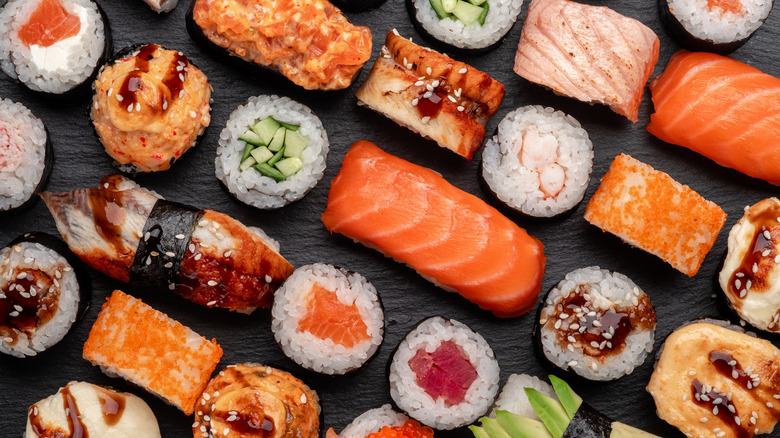Is Raw Fish Good For You?
Raw fish is eaten around the world. It is particularly popular in sushi dishes, although it can also be found in foods like tartare and ceviche. Many people prefer the flavor and texture of some kinds of fish when they are raw instead of cooked. But is this seafood preparation healthy? According to Healthline, there are a few health benefits to eating this type of fish. Raw fish isn't exposed to contaminants that can come from this meat being fried or grilled. These contaminants, called heterocyclic amines, can increase your risk of developing cancer. Cooked fish also has a smaller amount of omega-3 fatty acids, which provides a variety of health benefits.
However, raw fish comes with some risks as well. Cooking any kind of meat kills bacteria and parasites that might be present. Bacteria that can cause food poisoning found in some types of raw fish include Listeria, Vibrio, Clostridium, and Salmonella. While these bacteria shouldn't be found in fresh fish that is well-prepared, there is always a risk when consuming raw or undercooked meat. Raw fish also has a higher likelihood of containing mercury than cooked fish. This can lead to mercury poisoning, which can cause neurological damage.
How to stay safe when eating raw fish
While eating raw fish comes with some risks, there are ways you can reduce your risk of eating a bad piece of meat. According to Cleveland Clinic, you should only buy sushi from well-reviewed restaurants. If other people have had unpleasant experiences, you probably will too. If you're purchasing raw fish to eat at home, make sure you can keep it very cold until it's ready to eat. "If you're buying sushi to go, grab a tray from the bottom of the fridge, where the air tends to be coldest," said registered dietitian Kate Patton, RD.
According to the US Food and Drug Administration, you should also avoid buying frozen fish with ice crystals on the packaging. This usually means that the fish has been thawed and refrozen, which increases the risk of harmful bacteria lurking on the product. If you're browsing the seafood counter, make sure that you don't actually smell any of the products. "If you walk into a store and the seafood section smells like seafood, turn around and go the other way," Stephanie Harris-Uyidi, host of the "Posh Pescatarian: Appetite for Adventure" television series, told NBC News. Smelly fish likely hasn't been cleaned or stored properly.


